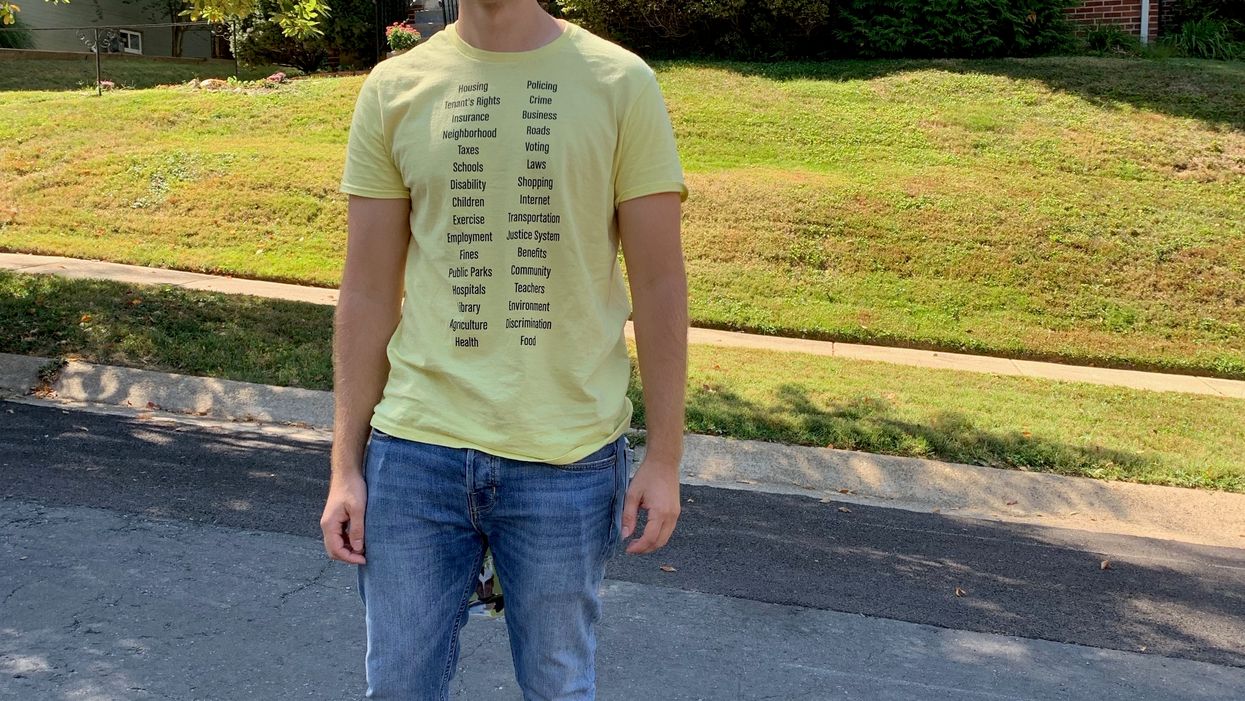Most people have never had a direct conversation with any of their elected representatives — and if they have, it was likely during campaign season. This interpersonal disconnect leaves too many Americans' concerns unheard, something a 22-year-old recent college graduate has a plan to fix.
While knocking on doors for a state Senate candidate near his college campus last year, Tino Fragale says he heard voters complain time and again that their concerns were routinely ignored by politicians except in the runup to an election.
"I always felt a sort of cynicism going door-to-door from my end as a canvasser. It felt like there was a lot more value we could be giving people at their doorsteps. We could be helping people a lot more," he said.
So Fragale committed himself to starting an organization that will act as a middleman between elected officials and their constituents — particularly in the months between elections. After graduating from the University of Maryland in May (he created his own major in advocacy and organization building) Fragale launched the nonprofit Everyday Canvassing to offer this sort of democracy mediation service to elected officials — for free.
Clad in a bright yellow T-shirt printed with 32 different possible topics of conversation — from agriculture and crime to tenants' rights and transportation — Fragale says he spends most days walking door-to-door in his hometown of Silver Spring, a suburb adjacent to Washington, to engage residents about what's going well in their community and what could be improved. If no one is home or someone doesn't have time to talk, Fragale leaves a promotional door hanger inviting a phone call or email.
For those who answer the door and agree to an interview, Fragale makes a digital tape recording of their comments and concerns and compiles them into thematic "podcasts" for listening by his clients. So far, his listeners are the three state representatives, all Democrats, who represent the city: Lorig Charkoudian, David Moon and Jheanelle Wilkins. He's hoping to get the area's state senator, Will Smith, on board next because he wants to concentrate on state issues first, and the lawmakers in Annapolis have smaller budgets for constituents service than members of Congress.
"It's a real genuine conversation between people because we are primarily aiming to listen," Fragale said. "Gradually, we hope that representatives are going to see this is a really effective service and that their constituents feel their voices can be heard better this way."
Sometimes, residents bring up urgent issues that can't wait for the legislative process to grind out a fresh law. In those cases, Fragale connects people with local or national nonprofits with resources to help. In addition to building relationships with elected officials, he's also hoping to find nonprofits that want his canvassing help finding people in need.
Fragale poured $3,000 of personal savings into launching Everyday Canvassing, setting up the website and buying equipment and T-shirts for the volunteer canvassing corp he hopes to assemble. A recently launched GoFundMe campaign is the next step in his development plan. The goal is $40,000, with the bulk paying for a full-time canvasser.
So far, the team consists of Fragale and two current University of Maryland students: development director Serena Saunders and creative director Sam Pinczuk. None are taking a salary until the organization gets off the ground.
All of the lawmakers the group is working with so far are Democrats, but that's only because his town is one of the deepest blue places in the country.
"Hopefully, if I'm working with a Democrat, they're working with a Republican somewhere else. That way we have a balance," Fragale said of the first full-time canvasser he hopes to hire. "There's not an equal balance of Democrats and Republicans in Maryland, but we'll do our best to be nonpartisan."
A paid canvasser, Fragale estimates, would be able to reach more than 2,600 households in a year and create dozens more podcasts, making state legislators more responsive to their communities. The benefit to the voters, as he sees it, is to revive their faith in government and "make politics feel a lot more wholesome."
"Maybe this could spark a re-engagement in our democracy in a bigger way because people really think that their opinion matters," Fragale said. "When our government actually does intend to listen and does come to our doorstep outside of election time, I think people really start to feel like their government is striving to make their lives better."




















Trump & Hegseth gave Mark Kelly a huge 2028 gift